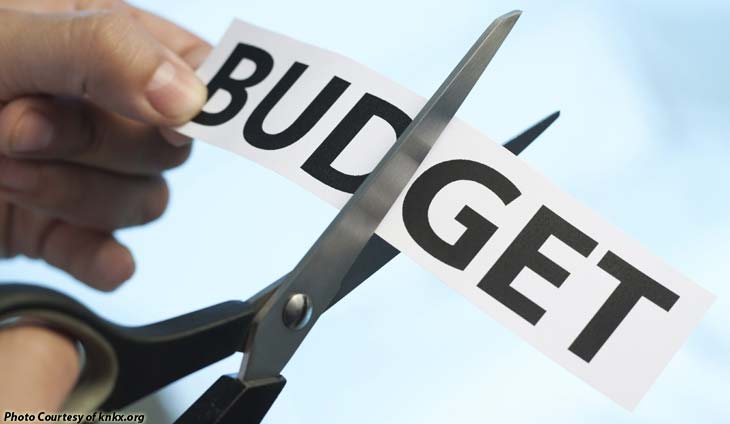
Introduction
Even though there are many here are 7 money mistakes to avoid in life. Money mistakes can be costly—not just in dollars, but in the opportunities lost and the stress created when finances spiral out of control. Whether it’s overspending, failing to save, or neglecting retirement, financial missteps compound over time and can make it much harder to build wealth.
Achieving financial stability and success requires awareness, discipline, and strategic money management. Unfortunately, many people fall into common financial traps that hinder long-term progress. But the good news? These seven mistakes can be avoided with the right mindset and financial habits.
In this blog, we’ll cover seven of the biggest money mistakes people make and, more importantly, how to avoid them so you can take control of your finances and build a secure financial future.

1. Not Having a Budget
Why a Budget Is Crucial for Financial Control and Long-Term Success
A budget is not about restricting yourself—it’s about giving yourself financial clarity and control. Without a budget, it’s easy to overspend, rack up debt, and struggle to meet financial goals. A well-planned budget allows you to:
✅ Know exactly where your money is going each month
✅ Prevent financial stress by staying ahead of bills and obligations
✅ Prioritize savings, investments, and debt repayment
✅ Make intentional decisions about spending instead of reacting to financial crises
Simply put, if you don’t tell your money where to go, it will disappear—and likely not in the direction that benefits you most.
Consequences of Not Budgeting
🚨 Overspending – Without tracking expenses, it’s easy to live beyond your means and accumulate unnecessary debt.
🚨 Lack of Savings – No budget often means no savings strategy, making it harder to build an emergency fund or invest for the future.
🚨 Financial Stress – Uncontrolled spending leads to paycheck-to-paycheck living, leaving little room for unexpected expenses or long-term financial security.
How to Avoid This Mistake
If you’ve never created a budget before, start small and simple. Here’s how:
1️⃣ Track Your Income and Expenses – Write down all sources of income and track every dollar spent for a month to understand your spending habits.
2️⃣ Categorize Spending (Needs vs. Wants) – Break down your expenses into essentials (housing, food, bills) and discretionary spending (dining out, entertainment, shopping).
3️⃣ Set Realistic Financial Goals – Identify short-term goals (like building an emergency fund) and long-term goals (like buying a home or retiring comfortably).
4️⃣ Adjust Your Budget Regularly – A budget should be flexible, adapting to income changes, unexpected expenses, and new financial goals.
Best Tools for Budgeting
Managing a budget manually can be overwhelming, but technology makes it easier than ever. Consider using:
📲 Mint – Automatically tracks and categorizes expenses for better money management.
📲 You Need a Budget (YNAB) – Helps you allocate every dollar effectively using a zero-based budgeting approach.
📲 Personal Capital – Great for tracking both your budget and investments to see the bigger financial picture.
📲 EveryDollar – Simple budgeting app that follows the Dave Ramsey budgeting method.
Final Thought on Budgeting
A budget is not a punishment—it’s a roadmap to financial freedom. If you’re not budgeting yet, start today. Even small steps toward financial awareness can transform your money habits and put you on a path to lasting wealth.
2. Overspending on Credit Cards
How Credit Card Debt Traps You in a Cycle of Interest Payments
Credit cards can be a powerful financial tool—but when used irresponsibly, they become a debt trap that’s difficult to escape. Many people rely on credit cards for everyday purchases, but high-interest rates make it easy to fall into a debt cycle where you’re constantly paying off past expenses instead of building future wealth.
🚨 The Trap: Carrying a balance month to month means you’re paying interest on previous purchases, making it harder to pay down the principal.
🚨 The Cost: With average credit card interest rates above 20%, debt can snowball quickly, costing you hundreds or even thousands in extra payments.
🚨 The Risk: If credit card balances keep growing, you risk damaging your credit score, making it harder to qualify for loans, mortgages, or even renting an apartment.
Signs You May Be Overspending on Credit Cards
❌ You only pay the minimum balance each month.
❌ Your credit card balances keep increasing instead of decreasing.
❌ You’re relying on credit for everyday expenses, like groceries and gas.
❌ You use one credit card to pay off another or frequently take out cash advances.
Smart Credit Card Habits to Avoid Debt
✅ Pay Off Your Full Balance Each Month – This is the best way to avoid interest charges and keep your credit in good standing.
✅ Keep Credit Utilization Below 30% – Your credit utilization (how much of your available credit you use) impacts your credit score. The lower, the better.
✅ Use Credit Cards for Essentials Only – Avoid using credit for impulse purchases or unnecessary expenses. If you wouldn’t buy it with cash, don’t put it on a credit card.
✅ Automate Your Payments – Set up autopay to ensure you never miss a due date and avoid late fees.
Final Thought on Credit Cards
Credit cards should work for you, not against you. If you’re already in credit card debt, focus on paying off balances aggressively using the debt avalanche or snowball method. And if you’re not in debt? Use credit responsibly to build a strong financial future.
Control your credit cards—don’t let them control you!
3. Neglecting Emergency Savings
Why an Emergency Fund Is Essential for Financial Security
Life is unpredictable. From sudden job loss to medical bills, car repairs, or home emergencies, unexpected expenses happen to everyone. Without an emergency fund, these situations can send you into financial chaos, forcing you to rely on high-interest debt or drain your savings.
An emergency fund acts as a financial safety net, protecting you from:
✅ Falling into credit card debt when unexpected costs arise.
✅ Financial stress caused by sudden expenses.
✅ Living paycheck to paycheck without backup savings.
What Happens When You Don’t Have Emergency Savings?
🚨 You rely on high-interest debt. Many people turn to credit cards, payday loans, or personal loans to cover emergencies—leading to a costly cycle of debt.
🚨 You experience increased financial stress. Not having an emergency fund means even minor unexpected expenses can feel overwhelming, creating anxiety and uncertainty.
🚨 You risk financial instability. Without savings, a single setback (like job loss) could leave you struggling to pay bills, rent, or other essentials.
How to Build an Emergency Fund (Even on a Tight Budget)
💰 Start Small, Be Consistent – Set aside just $25-$50 per paycheck to get started. Small steps lead to big results over time.
💰 Set a Goal of 3-6 Months’ Worth of Expenses – This will give you a solid cushion to cover emergencies without borrowing money.
💰 Use a High-Yield Savings Account – Keep your emergency fund in an account that earns interest but remains easily accessible. Avoid investing it in stocks or risky assets.
💰 Keep It Separate from Your Spending Account – Out of sight, out of mind. Having your emergency savings in a separate account reduces the temptation to dip into it for non-emergencies.
Final Thought on Emergency Savings
Building an emergency fund isn’t about if you’ll need it—it’s about when. Unexpected expenses are inevitable, but being prepared keeps you in control.
Start today—even if it’s just $5. Your future self will thank you.

4. Ignoring Retirement Savings
Why Delaying Retirement Savings Can Cost You Thousands
Many people put off saving for retirement because it feels far away or they believe they’ll “catch up later.” However, delaying retirement contributions can cost you thousands—if not hundreds of thousands—over time.
The reason? Compound interest. The longer your money stays invested, the more time it has to grow exponentially.
How Compound Interest Works—The Earlier You Invest, The More You Earn
Let’s say you invest $200 per month in a retirement account with an 8% annual return:
📌 Starting at Age 25: You’d have $622,000 by the time you retire at 65.
📌 Starting at Age 35: You’d have only $274,000—less than half!
📌 Starting at Age 45: Your savings would be just $114,000.
💡 Lesson: The earlier you invest, the more your money works for you—without you having to do extra work!
How to Avoid This Mistake
✅ Start Contributing to a 401(k) or IRA ASAP – Even if you can only invest a small amount, start NOW to maximize long-term growth.
✅ Take Full Advantage of Employer-Matched Contributions – If your employer offers a 401(k) match, contribute enough to get the full match—it’s free money!
✅ Increase Contributions as Your Income Grows – Whenever you get a raise or bonus, increase your retirement contributions instead of inflating your lifestyle.
Retirement might feel far away, but your future self will thank you for starting today!
5. Living Beyond Your Means
The Dangers of Lifestyle Inflation—Spending More as Your Income Increases
It’s natural to want a better lifestyle as you earn more, but increasing your spending as fast as (or faster than) your income grows is a major financial mistake.
This is called lifestyle inflation—when every raise, bonus, or extra income gets absorbed into higher expenses instead of savings or investments.
The problem? 🚨
- Higher spending = No financial cushion
- You stay paycheck to paycheck, regardless of income
- You miss out on building long-term wealth
Why Spending More Than You Earn Leads to Financial Instability
🚨 No Room for Savings – When expenses increase along with income, there’s nothing left for savings, investments, or an emergency fund.
🚨 Higher Debt Levels – Financing an expensive lifestyle with credit cards, car loans, or personal loans leads to long-term financial stress.
🚨 Delayed Financial Goals – You may earn more, but never feel ahead because your spending keeps pace with your income.
How to Avoid This Mistake
✅ Differentiate Between Needs and Wants – Just because you can afford something doesn’t mean it’s a smart purchase. Ask: Will this purchase build wealth or drain it?
✅ Avoid Financing Luxury Purchases with Credit or Loans – If you can’t afford it in cash, reconsider whether it’s worth the long-term debt.
✅ Look for Ways to Increase Income and Reduce Unnecessary Expenses – Instead of spending more, focus on growing your income and investing wisely.
Don’t let lifestyle inflation keep you from financial freedom—invest in your future, not just your present.
6. Not Improving Your Credit Score
How a Low Credit Score Affects Your Financial Life
Your credit score isn’t just a number—it’s your financial reputation. A low credit score can cost you thousands over time and make financial opportunities harder to access.
🚨 Higher Interest Rates – The lower your credit score, the more you’ll pay in interest on loans, credit cards, and mortgages.
🚨 Denied Loans and Credit Cards – A poor credit score can prevent you from getting approved for loans, car financing, or even renting an apartment.
🚨 More Expensive Insurance Rates – Some insurance companies charge higher premiums based on credit history.
🚨 Job Disqualifications – Some employers check credit scores before hiring, especially for finance-related jobs.
Key Factors That Impact Credit Scores
To improve your credit score, you need to understand what affects it:
📌 Payment History (35%) – Late payments = lower score. Paying bills on time is the most important factor in your credit score.
📌 Credit Utilization (30%) – The amount of credit you use compared to your total credit limit. Keep utilization below 30% for a strong score.
📌 Length of Credit History (15%) – Older accounts help your score, so don’t close old credit cards unless necessary.
📌 Credit Mix (10%) – A mix of different types of credit (credit cards, auto loans, mortgages) can help improve your score.
📌 New Credit Inquiries (10%) – Opening too many new accounts in a short period can hurt your score.
Steps to Improve Your Credit Score
✅ Pay All Bills on Time – Set up autopay for at least the minimum payment to avoid late fees.
✅ Check Your Credit Report Regularly – Errors on your credit report can drag your score down. Get a free report at AnnualCreditReport.com and dispute any mistakes.
✅ Keep Credit Utilization Low – If you have a $10,000 limit, don’t carry a balance over $3,000.
✅ Avoid Unnecessary New Credit Accounts – Each new credit inquiry lowers your score slightly, so only apply when needed.
✅ Become an Authorized User – If a trusted family member has good credit, being added to their card can help boost your score.
A good credit score unlocks financial freedom. Improve it today, and future-you will thank you!

© Masterfile Royalty-Free
Model Release: Yes
Property Release: No
Businessman showing his empty pockets
7. Failing to Set Financial Goals
Why Setting Clear Financial Goals Is Essential for Success
Would you take a road trip without a destination? Probably not. The same applies to your money—if you don’t set financial goals, you’re just wandering aimlessly.
Having clear, actionable financial goals keeps you motivated, helps you track progress, and ensures that your money is working for you, not against you.
Common Financial Goal Mistakes
🚨 No Defined Savings or Investment Goals – If you’re not setting specific goals, you’re likely saving or investing without a purpose.
🚨 Lack of Motivation and Direction – Without goals, it’s easy to spend money on impulse purchases instead of growing wealth.
🚨 Not Reviewing Goals Regularly – Setting a goal once and forgetting about it leads to a lack of progress.
How to Set Effective Financial Goals
📌 Use SMART Goals – Goals should be:
- Specific (Clearly define what you want).
- Measurable (Know how to track progress).
- Achievable (Set realistic targets).
- Relevant (Aligned with your financial situation).
- Time-bound (Have a deadline for completion).
📌 Break Long-Term Goals into Small, Manageable Steps
- Instead of saying, “I want to save $50,000,” break it into smaller milestones like:
- “Save $5,000 this year.”
- “Save $100 per week.”
📌 Review and Adjust Financial Goals Regularly
- Life changes—so should your financial goals. Review them every 3-6 months to stay on track.
Examples of Strong Financial Goals
✅ Short-Term Goal: Save $1,000 for an emergency fund in the next 3 months.
✅ Medium-Term Goal: Pay off $5,000 in credit card debt by next year.
✅ Long-Term Goal: Invest $500/month into a retirement account for the next 20 years.
A goal without a plan is just a wish. Set clear financial goals and start taking action today!
Conclusion
Financial success isn’t about luck—it’s about making smart money decisions and avoiding costly mistakes that can hold you back. The seven biggest money mistakes we’ve covered can have long-term consequences, impacting your ability to save, invest, and achieve financial freedom.
Recap: The 7 Biggest Money Mistakes to Avoid
❌ Not Having a Budget – Without a budget, money disappears, making it harder to save and plan for the future.
❌ Overspending on Credit Cards – High-interest debt can trap you in a cycle that’s tough to escape.
❌ Neglecting Emergency Savings – Unexpected expenses happen; an emergency fund keeps you from relying on debt.
❌ Ignoring Retirement Savings – The earlier you start investing, the more you benefit from compound interest.
❌ Living Beyond Your Means – Lifestyle inflation keeps you stuck in the paycheck-to-paycheck cycle.
❌ Not Improving Your Credit Score – A low score costs you more in loans, insurance, and missed financial opportunities.
❌ Failing to Set Financial Goals – Without a financial plan, it’s easy to lose direction and motivation.
The Importance of Financial Discipline and Planning
Wealth isn’t built overnight—it’s the result of consistent, disciplined financial habits. Avoiding these mistakes requires:
✅ Tracking your spending and making smart budgeting decisions.
✅ Building savings and investing early to maximize long-term returns.
✅ Using credit responsibly and working to improve your financial health.
✅ Setting clear financial goals and creating a plan to reach them.
Take Action Today!
The best time to start was yesterday. The next best time is right now.
🚀 Create a budget.
🚀 Start an emergency fund.
🚀 Tackle your debt strategically.
🚀 Invest in your future.
🚀 Set financial goals that align with your dreams.
Final Motivation: Financial Freedom Is Within Reach!
Money should be a tool to build the life you want—not a source of stress. Avoiding these seven mistakes will set you on the path to financial security, independence, and long-term wealth.
💡 You have the power to take control of your finances—start today, and your future self will thank you! 🚀🔥
